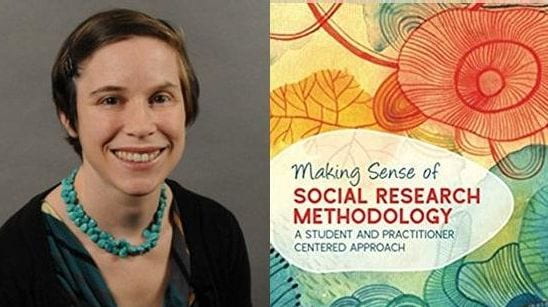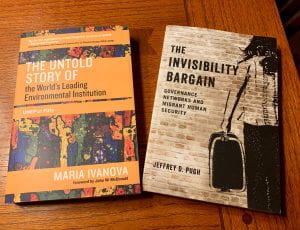
(Top Row: Jokaimy Caceres, LCSW Parent Organizer and Advocate; Brian Beauregard, Public Policy PhD Student & CSP Research Associate; Olanike Ojelabi, Public Policy PhD Student & CSP Research Associate) (Bottom Row: Bianca Ortiz-Wythe, Public Policy PhD student & CSP Research Associate; Candice Harding, Parent Organizer & Advocate at Boston’s Higher Ground; Susan Crandall, Director of CSP)
Written by: Center for Social Policy
There are over 4500 homeless students enrolled in Boston Public Schools each year, and many more families will be at-risk of homelessness even as the pandemic eases. In response to this growing challenge, which disproportionately impacts families of color and those with limited English proficiency, a collaboration of public and private partners launched the Family Led Stability Pilot (FLSP). This cross-sector collaboration is key to the FLSP approach to achieving housing stability for vulnerable families, which targets seven elementary schools in the Roxbury and Dorchester neighborhood.
The Center for Social Policy (CSP), based in UMass Boston’s McCormack Graduate School, is conducting a multi-year comprehensive evaluation of FLSP. The FLSP partners include Boston Public Schools (BPS), City of Boston’s Department of Neighborhood Development (DND), Boston Housing Authority (BHA), City Councilor Annissa Essaibi-George, Dudley Street Neighborhood Initiative (DSNI), New Lease for Homeless Families, Project Hope, and Boston’s Higher Ground.
The frontline staff at local community-based organizations in Nubian Square play a critical role in the initiative, forging connections between families, BPS, essential services, and of course – permanent housing. In one case a grandmother had been the sole caregiver and provider for her two young granddaughters, students at BPS. Due to circumstances beyond her control, she and her granddaughters became homeless. For several months they lived in two shelters, and their lives were in a constant state of upheaval until Boston’s Higher Ground stepped in to give this family the help they needed through the FLSP collaboration. The grandmother noted:
“Kathy Drew from Higher Ground is so sweet. She came to visit me and my granddaughters where we were living. She helped me find a lawyer and she helped me complete paperwork that I did not understand. Now I have a Section 8 voucher and we are finally looking for permanent housing. I don’t know what I would have done without the help of Higher Ground.”
Jokaimy Caceres, LCSW, Parent Organizer and Advocate/Organizadora y Defensora de Padres and Boston’s Higher Ground summarized the underlying philosophy of FLSP: “The services I provide to homeless families are important because low-income families deserve to feel safe and secure in order to be able to achieve their highest potential. If individuals do not have their basic needs met, everything else will feel impossible to do.”
Paulette Mendes, Family Partner at Project Hope emphasized the importance of local partners working in tandem to help families: “This program is truly a reflection of “It takes a village.” Through this wonderful collaboration, we have been able to house many families. Not only house them but provide them with a place to call home. For many of our families, this is the first time that their children have their own room, not to mention their own beds. This would not be possible without all of the partners believing that housing is a human right and it takes a village to make it happen.”
The staff at community-based organizations empathize with the clients they serve: “I serve homeless families because as a single mother myself, I understand the challenges that many of our families face day to day. To be able to assist a family with locating affordable housing and hearing how excited they are when they finally receive their keys, is so rewarding for me.” said Candice Harding, Parent Organizer and Advocate at Boston’s Higher Ground.
Public Policy doctoral student and CSP research associate Olanike Ojelabi, who conducts qualitative interviews with families, shared “I feel connected to this project because it aligns with my research goals to advance social and economic wellbeing for vulnerable and underserved populations. Working on this project as an interviewer is emotionally challenging but also inspiring as I listen to the difficult experiences of these families, as well as their strength and resilience to find shelter and a build a home for themselves and their children. “
Public Policy doctoral student and CSP research associate Brian Beauregard added: “CSP and the partners of FLSP are deeply committed to serving families that are experiencing financial and housing instability. The qualitative research, which includes interviews with families that have been served by FLSP, is important to the success of the initiative. It gives families a much-needed voice and their perspectives are invaluable; it will give an in-depth view of how the initiative is working. This research greatly aligns with my own values and research interests to serve the greater community and to play a role in helping all families to thrive.”
CSP Director Susan Crandall summed up: “The FLSP is at the heart of what we do at the Center for Social Policy: It is local community-engaged research focused on very low-income families, typically headed by women of color. It recognizes the complexity of family homelessness, crossing sectors and policy domains. It is a two-generation strategy that directly engages BPS families to help them connect with critical services and permanent housing. Our mixed-methods evaluation centers on hearing the voices of impacted women to develop policies to eliminate family homelessness.”
The evaluation is also staffed by Public Policy doctoral student and CSP research associate Bianca Ortiz-Wythe, Senior Research Fellow Susan Foley and Senior Research Associate Ngai Kwan, both based at the Institute for Community Inclusion.





